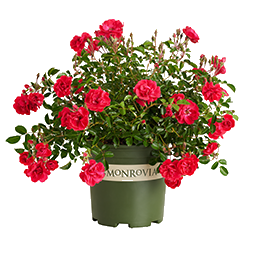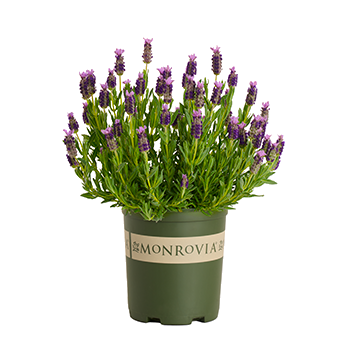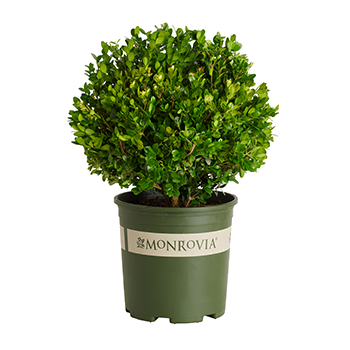One way designers get this enviable look is by placing large, interesting plants at the very back of the border. Alternatively, against a wall or just freestanding. The height and scale these plants provide offer a backdrop against which all the rest of the plants can shine. It is also an exuberant exclamation point for the entire scheme.
Let’s dig a bit deeper into this fun (and totally do-this-at-home) topic. Here are three things to consider when thinking about the all-important last layer of a brilliant border. Also, please see “Design Math” below to help you get the scale right.
3 Common Mistakes:
Not paying attention to the middle layer. This is where you need plants with enough height to create levels.
Not allowing for mature size of the tallest plants is a battle in the making that you cannot win. Believe the plant tags.
Opting for flowering plants over those with wonderful foliage. Great leaves make flowers look even better!
HOW MUCH DEPTH DO YOU HAVE?
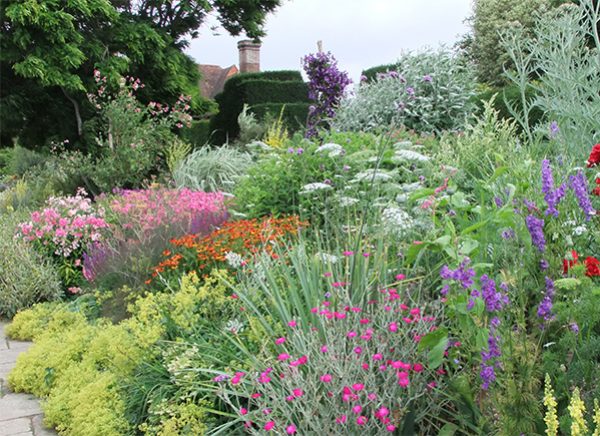
Don’t guesstimate. Considering how easy it is to be seduced by a great plant, the first step is grab a measuring tape. Then, figure out the exact depth of the space.
(Left) Yes, we know you don't live at England's Great Dixter. However, just observe how they've taken advantage of the extreme depth of this space with very defined layers, almost stepped. The back layer is more than three times the height of the front. Lesson here–when you have the space, go big!
(Lower left) Here the third layer is intentionally oversized to draw the eye upward to the surrounding trees. It’s perfectly in scale with the nearby forest.
(Below) In this shallow space the back layer is not a shrub at all. It's a climbing rose that clads the wall. It’s the perfect solution where depth is missing.
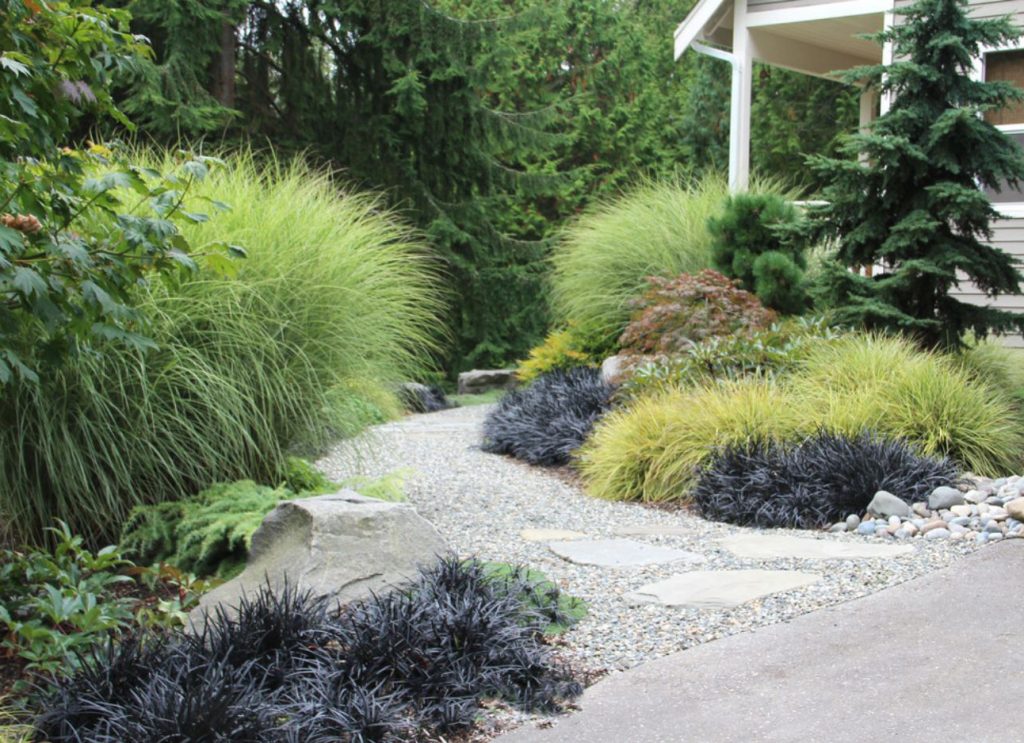
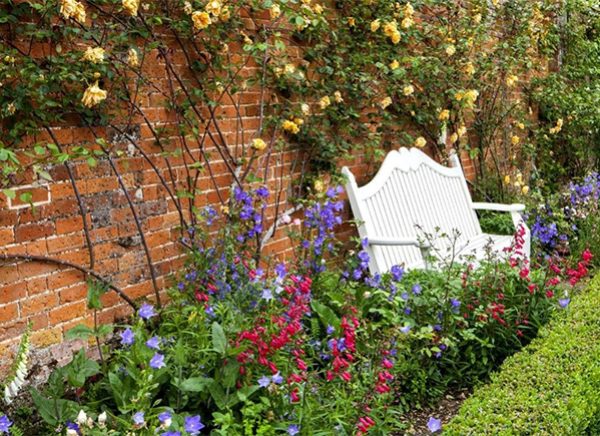
DO YOU NEED FUNCTIONALITY?
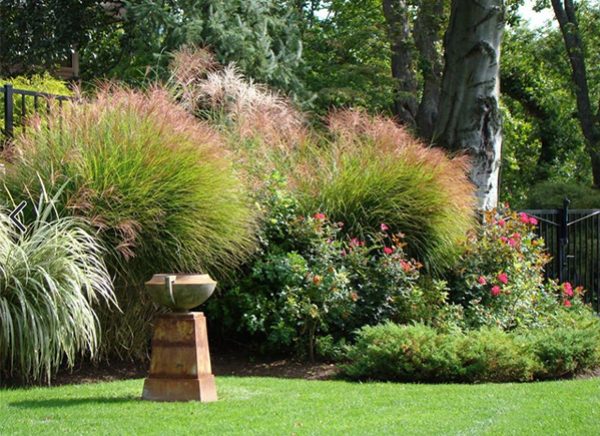
Sometimes a border needs to serve as a privacy screen or a deterrent to entry into the yard. Even as a leafy cover up for an unsightly wall. Your choice of plants—height and attributes—will go a long way to problem solving. Here are a few examples:
(Left) No prying eyes are going to see over/under/through this dense curtain of maiden grass (Miscanthus sinensis ‘Gracillimus’). The third layer of an elegant conifer, rose, grass combo.
(Lower left) This middle layer of thick, spiny holly in front of the taller blue spruce. This means no one's getting into this yard easily. Even when the hostas die back, this is going to look great right through winter.
(Below) Granted this is not the worst fence ever. Although, using a third layer of tall shrubs to visually erase while adding texture and interest is a good idea.
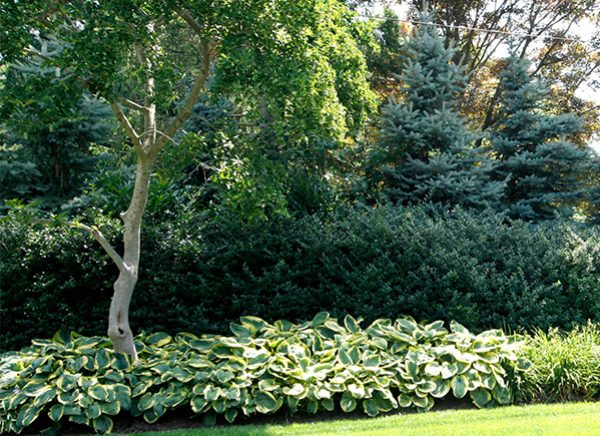
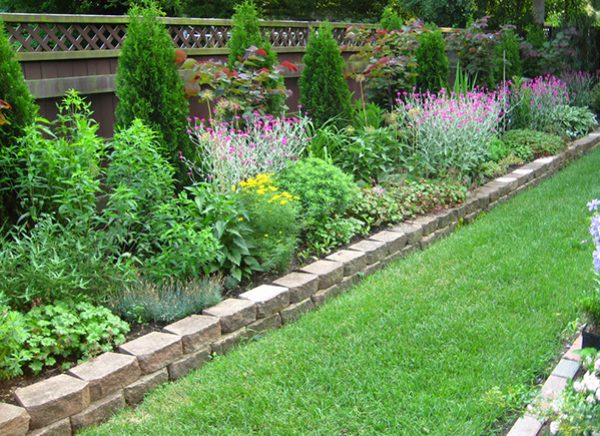
DO YOU NEED YEAR ROUND INTEREST?
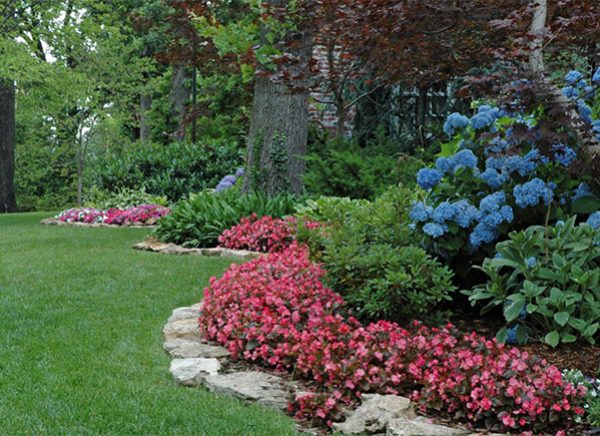
If you have a space that needs to look good in all seasons—maybe seen from a kitchen window—try evergreens. A mix of these are going to be your best friend. If not, consider the wonderful combos you can have if this border has only to be enjoyed for a moment.
(Left) This mix of evergreen and deciduous shrubs as the taller third layer with seasonal annuals for powerful color. This is going to look good pretty much all the time.
(Lower left) But, what if you just wanted a summer time bloom-a-palooza? Maybe a thick border of annuals with those sunflowers the perfect third layer.
(Below) Or, a shapely border that has a name-in-lights moment for a short time. For instance, these bobble headed dahlia that won't leave much to look at once they're gone. (But, wow!)
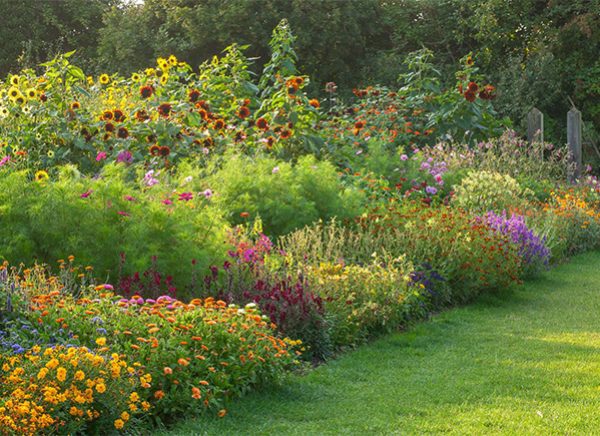
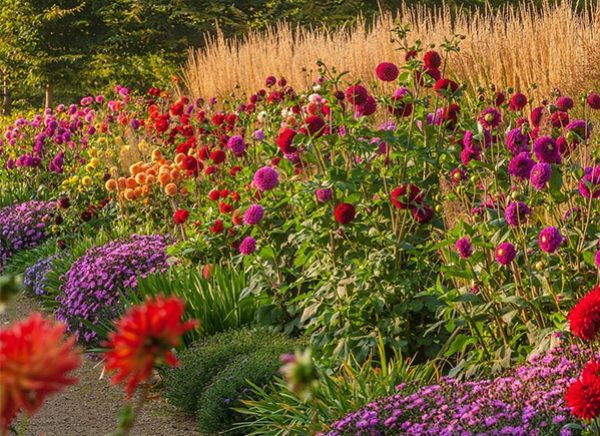
FORMULA FOR SUCCESS
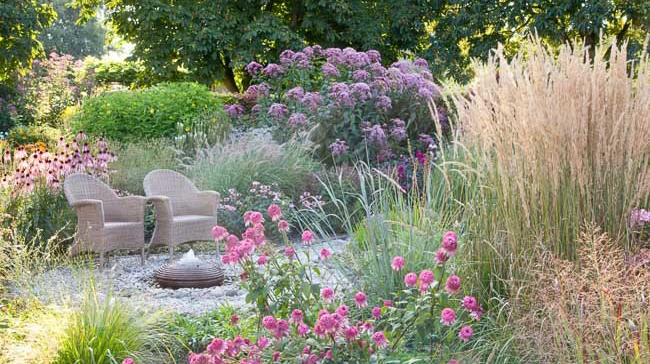
Design Math
Adjustments will have to made in consideration of sites specifics and personal preferences. Here are some general guidelines to help you get the scale right:
- Front: low ground covers and smaller plants—no taller than 18″ tall.
- Middle: most perennials and smaller shrubs—18″- 3′ tall.
- Back: taller perennials, shrub, and smaller trees—3′ tall and above.
(<—-Plants include: coneflowers, Japanese Burnet, fountain grass, Joe Pye weed, and feather reed grass)
MISSED OPPORTUNITIES
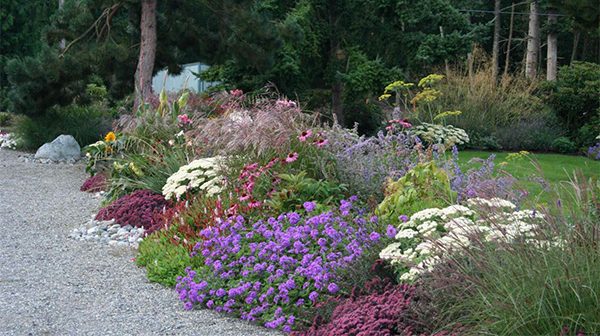
Borderus Interruptus
Just look at all that color and soft tumbling plants that spill onto the gravel walkway. So lovely, but does it seem to you that it just sort of drops off on the back? And feels a bit out of scale with the plants in the bed behind it?
Takeaway: Not blocking views is always a consideration when creating a border. Although, without that taller third layer, the eye just passes over it to the taller plants beyond. And when you have such a lovely planting, that’s a shame.
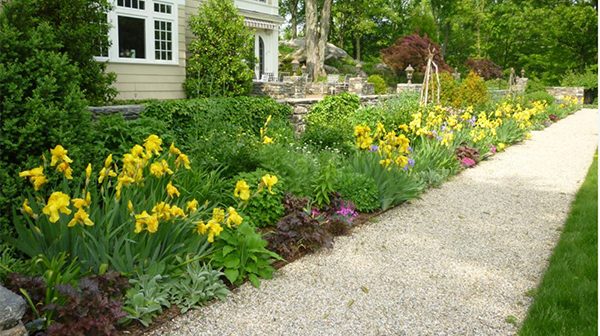
Is a wall really the third layer?
So impressive with all those perfect groupings and smattering of dark and light foliage. And to some extent those tall rustic obelisks do provide some height. However, note how this border dips in the middle and how the wall dominates to the detriment of the plants.
Takeaway: A wall does technically serve as a back of a border. However, the fact that you can see so much of it changes it. It now goes from a slam dunk to one where it feels like they didn't finish the thought. Even just a clump of three to five taller plants midway along the length here would have made an impact.
Image Credits:
(Top): sunset.com
Row 1: Long border, Great Dixter, original source unknown; blissgardendesign.com; mariannemajerus.com
Row 2: johnsenlandscapes.com; deborahsilver.com; fence border, original source unknown
Row 3: Hydrangea border, original source unknown; annuals, original source unknown; clivenichols.com
Row 4: Original source unknown
Row 5: Original source unknown; Original source unknown
